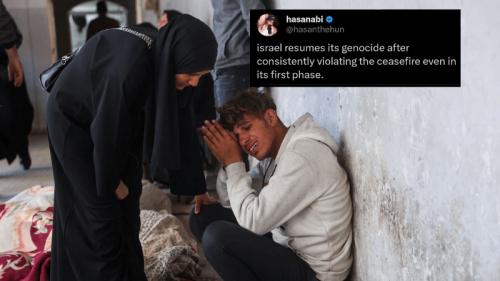A television reporter was standing in the floodwaters. He was yelling and cursing democracy for all the miseries that the rains and floods had brought. His repeated yelling and cursing suggested that either he did not have anything else to report or did not want to. As such images now frequently appear on Pakistani TV screens, viewers are also getting used to them.
But what really do such images and reporting patterns reflect? Are they part of the TV channels’ ratings race or are they intended to promote certain personal or borrowed agendas of media groups and individuals? A conscious viewer often raises such questions when watching highly opinionated news reports.
While covering a situation of disaster, crisis or conflict is always a difficult task for reporters, it is unfortunate that a large section of Pakistani TV reporters follows unprofessional, subjective and sensational ways to report even routine events. Some media experts call it the murder of objectivity and professional standards. Certainly, the entire Pakistani media is not like that. Nor does a particular piece of reporting make the professional credentials of Pakistani media and journalists weak.
It is tragic that many of our journalists find unprofessional ways to report even routine events.
In this context, a recent study Media Safety in Pakistan, based on case histories of journalists who were threatened or killed in the line of duty, and conducted by a research group in Islamabad, shows that it is a sense of social obligation among many journalists that plays a part in their choice of profession. That is to say, social obligation appears to be an important factor in the work of journalists engaged in social activities at some level. This is tied to their educational profile which often suggests they chose journalism for reasons of social obligations, to bring about a change in society. In fact, this could be another reason for their inclination to unearth and report on exclusive stories.
This factor has helped mould a certain type of behaviour in journalists, which has led them to not only being forced to take risks but also to compromise on basic professional standards in the performance of their duties. Analysis shows that journalists’ political, ideological and religious associations often go hand in hand with other important aspects related to their job and level of professionalism, such as their way of reporting, attitudes and their threat perceptions.
In Pakistan, journalists belonging to small and local media outlets appear to be more prone to threats. State and non-state actors both contribute to the threat matrix at the local level. Criminals and militants in small towns and tribal areas mainly threaten journalists affiliated with local publications and media outlets with comparatively less outreach. The affiliation of media persons with major media outlets, especially journalists in small towns and cities, may offer some security, and those upset by the media’s coverage may not react to the extent where there is serious danger to journalists.
However, journalists belonging to major media houses are more prone to threats if they are critical towards the policies espoused by the state and by non-state actors. Journalists who are considered to be opinion makers or are seen as playing a role in shaping the discourse on an important issue are likely to face greater threats. In this regard, being a part-time journalist may not shield one from threats. However, studies show that journalists’ religious and political affiliations do not necessarily contribute to the threats they face.
This particular study revealed that in the case of those journalists who were killed, it was not known if their respective media groups had been demanding exclusive reporting from them. In the absence of evidence to the contrary, it may be assumed that such reporters often take risks at their own initiative. That could happen for a number of reasons. They could be in search of professional excellence, or monetary bonuses. Second, they could be under social, political and ideological compulsions; even if they have no political affiliations they are aware of political developments and very much aware of religious-political developments in their respective areas and in the country at large.
The study showed that the more adventurous ones did not belong to the conflict zones and they seemed not to have sensed the level of risk. It is different in the case of journalists who are from the conflict areas of Khyber Pakhtunkhwa and Fata, and not engaged in exclusive reporting. One reason could be that their routine reporting already has a lot of substance. Secondly, the nature and pervasiveness of threats and pressure from friends and family often stop journalists living in these areas from taking undue risks.
Case studies from KP and Fata are reflective of the fact that media practitioners who work from there mainly face threats regarding the coverage of non-state actors, who complain that the media is not giving them proper space or their point of view is being distorted.
There is much that the government and the media can do to mitigate the level of threat to journalists, but it is of primary importance that journalists themselves must be advised to remain extra vigilant in covering stories which involve powerful actors who can take offence quickly. Local correspondents should seek solutions in consultation with their media houses to ensure that the issue is covered without exposing them to risk. That can be managed sometimes by filing sensitive reports with a different dateline or requesting the media house to send journalists from outside a difficult district to cover a particular issue or development.
It is important for media persons, especially reporters, that they follow professional norms and standards, as these too are a social obligation. Objective reporting can bring about their desired change in society. In fact, objectivity ensures justice and merit in a society.
The writer is a security expert.
Published in Dawn, September 21th, 2014













































